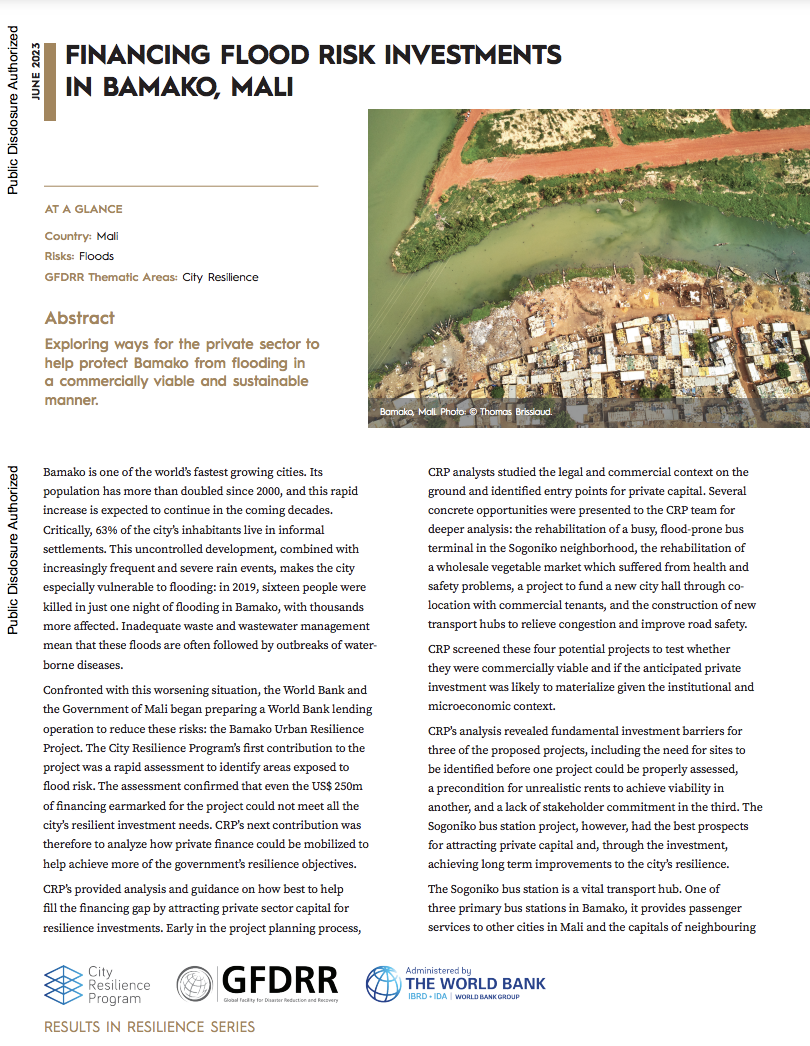Bamako is one of the world’s fastest growing cities. Its population has more than doubled since 2000, and this rapid increase is expected to continue in the coming decades. Critically, 63% of the city’s inhabitants live in informal settlements. This uncontrolled development, combined with increasingly frequent and severe rain events, makes the city especially vulnerable to flooding: in 2019, sixteen people were killed in just one night of flooding in Bamako, with thousands more affected. Inadequate waste and wastewater management mean that these floods are often followed by outbreaks of waterborne diseases.
Confronted with this worsening situation, the World Bank and the Government of Mali began preparing a World Bank lending operation to reduce these risks: the Bamako Urban Resilience Project. The City Resilience Program’s first contribution to the project was a rapid assessment to identify areas exposed to flood risk. The assessment confirmed that even the US$ 250m of financing earmarked for the project could not meet all the city’s resilient investment needs. CRP’s next contribution was therefore to analyze how private finance could be mobilized to help achieve more of the government’s resilience objectives.

